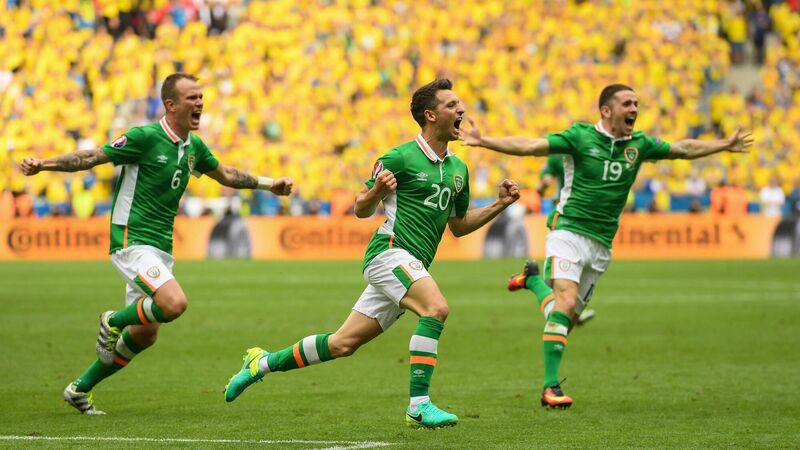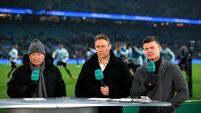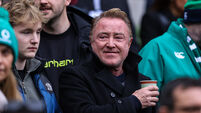Ian Mallon: How Irish players split €2.6m in Euro 2016 bonuses

QUIDS IN: Wes Hoolahan, centre, of Republic of Ireland celebrates after he scored his side's first goal during the UEFA Euro 2016 Group E match between Republic of Ireland and Sweden at Stade de France in Saint Denis, Paris, France. Pic: Stephen McCarthy/Sportsfile
FOR the first time, it can be disclosed that the Republic of Ireland Men’s team were paid €2,550,000 in bonuses and fees for qualification and participation in Euro 2016.
Details of the various amounts and the make-up of the different fees and bonus payments have never been disclosed by the FAI, and don’t include potential bonuses to the team’s management, or to then FAI CEO John Delaney.









